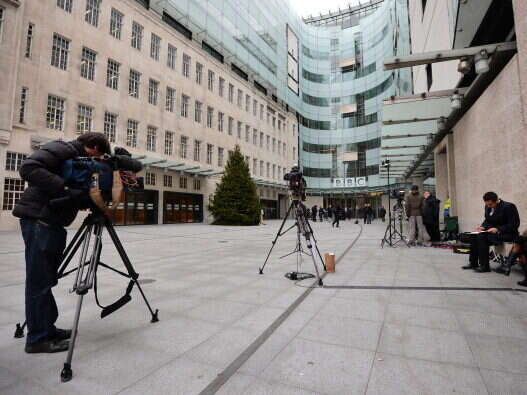
On Tuesday 6 June, Culture Secretary Lucy Frazer told the Digital, Culture, Media and Sport Committee: “I am definitely a supporter of the BBC… but it does need to understand its duties in relation to impartiality.” Questioned by Conservative MP Simon Jupp, she added: “I think that the BBC on occasion is biased, yes.” But she refused to give any specific examples.
Many Conservatives’ criticisms of the BBC are much stronger than Frazer’s. Typically, they see its “left-wing institutional bias” as self-evident. For instance, the now-controversial Conservative MP Scott Benton, opposing the government’s widely-welcomed decision not to privatise Channel 4, denounced “Channel 4’s engrained liberal-left cultural bias which almost makes the BBC look impartial”.
But, in reality, the endlessly repeated “left-wing BBC” narrative fits neither the facts nor most people’s perception.
A Cardiff University analysis of BBC News in 2009 (under Labour) and 2015 (under the Conservative-led coalition) counted how often it mentioned think tanks categorised as left-leaning, right-leaning, or neutral in both years, finding a broad balance in 2009 but a clear bias to the right in 2015. “When Labour was in power [in 2009], the BBC’s use of think tanks was relatively even-handed, but when a Conservative-led coalition was in power [in 2015], the centre of gravity [in the BBC’s coverage] shifted to the political right.”
Another academic study found that, during the 2017 general election campaign, 69% of the newspaper stories featured on the BBC’s daily late-night TV show The Papers were from Conservative-supporting titles versus 23% from those supporting Labour and 8% from those supporting other parties (Ukip or the Lib Dems). Some 68% of studio guests with a clear party affiliation were also Conservatives.
The BBC’s right-leaning critics would doubtless dismiss these studies, saying the authors were metropolitan media academics and therefore, like everyone at the BBC, card-carrying – perhaps even tofu-eating – members of the left-liberal “anti-growth coalition”.
Much more problematic for these right-leaning critics, who always claim to represent the silent majority, is that most of the public disagrees with them.
In Yougov’s biannual public opinion tracker, about 20% agree that the BBC tends to favour Labour and/or the left. But the other 80% disagree, including about 20% who say exactly the opposite – that it generally favours the Conservatives and/or the right. The majority (about 60%) fall somewhere in between, either explicitly saying it is generally neutral or responding “don’t know’ – hardly compatible with the idea that it is palpably left-wing.
These percentages have been steady over time and are similar in other independent surveys. But in the latest Yougov one (May 2023), the proportion saying the BBC favours the Conservatives and/or the right has actually increased, marginally, to 25%, while the proportion saying it has a left-wing bias remains at 20%.
The reasons for this recent shift are unclear. They might include the public’s response to right-wing papers’ confected fury about Gary Lineker’s tweet comparing Home Secretary Suella Braverman’s language about immigration to that used in 1930s Germany, or perhaps the revelations about Richard Sharp’s appointment as BBC Chairman. We can only speculate.
Whatever the reasons, the great majority of the British public simply don’t agree that its news coverage is systematically biased to the left.
Lucy Frazer will doubtless hear plenty from her right-wing colleagues about the need to “tackle” the BBC’s supposed left-wing bias. But if she looks at the evidence, she will find that it is those colleagues, not the BBC, who are out of touch with majority public opinion, highlighting the splits in her party. She now has a choice: should she align herself with the right-wing Beeb-bashers or with the majority of the public who disagree with them? We’d advise the latter: trust the public.
Patrick Barwise and Peter York are the authors of The War Against the BBC, published by Penguin.
Email pged@pressgazette.co.uk to point out mistakes, provide story tips or send in a letter for publication on our "Letters Page" blog
